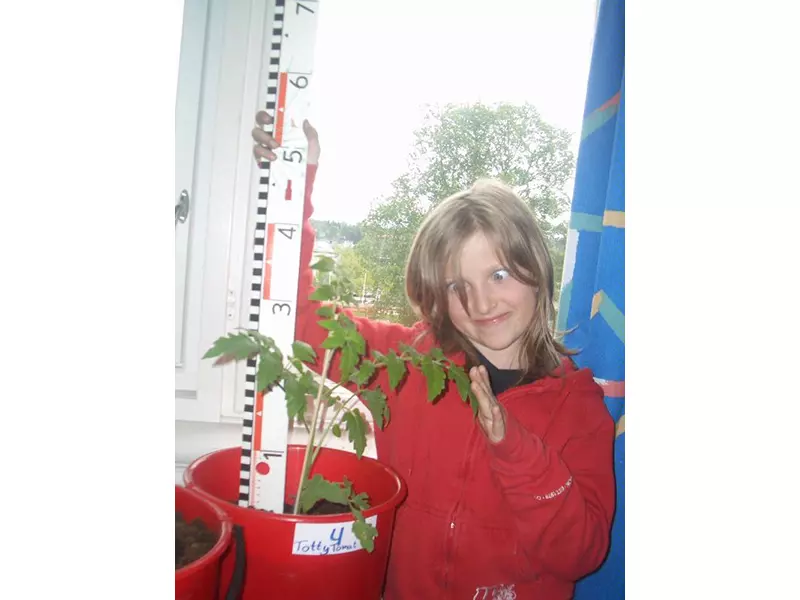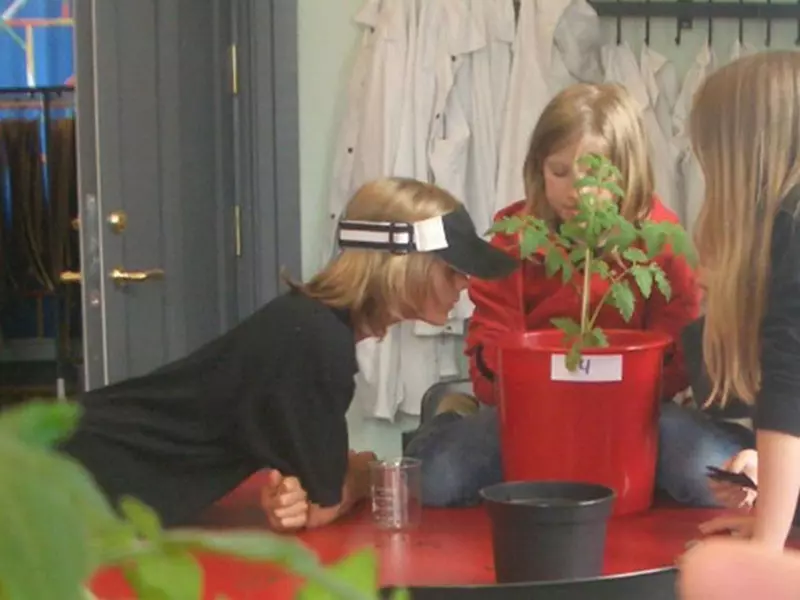Compost grow tomato
This experiment links the classroom compost box to the material cycles in nature. The decomposition processes that can be observed in the box visualize the natural transformation of dead organic material into humus, which in turn provides nutrients for new plant growth.
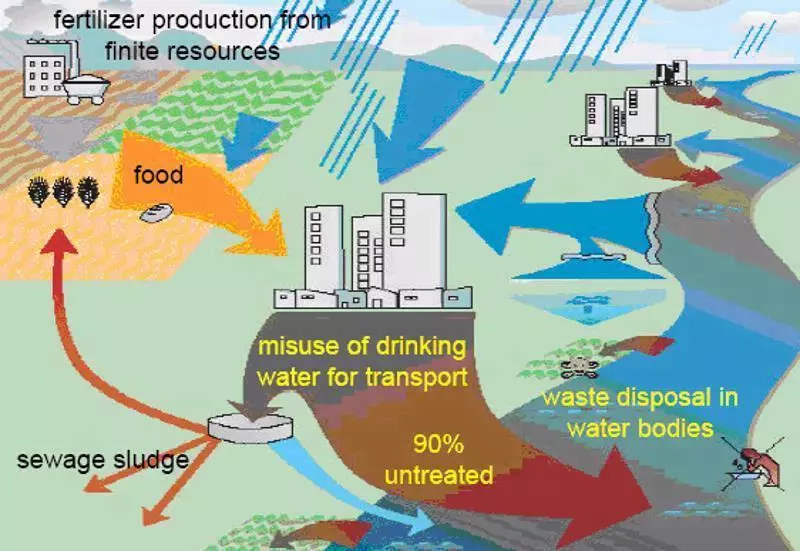
Our modern society seems weakly linked with the natural cycles. For example, today we are using a lot of water to flush away our toilet wastes. Central sewer systems and treatment plants require a lot of energy to remove the wastes from the water. At many places natural waters systems are polluted by wastewater discharge. But aren't toilet wastes basically organic materials that could be composted? Do we need to flush them away with a lot of precious drinking water? The picture below shows our waste management practice of today and it really does not look nice. This experiment will provide ideas on what we can do to improve this situation.
Is this really the right way to deal with our organic wastes? Worldwide 90% of human wastewater are discharged untreated into natural waters. In Europe the situation fortunately is a bit better. Today, most part of the European wastewater flows trough a treatment plant. However only a few of those treatment systems are able to recycle the nutrients we are flushing into the toilet.
Learning goals
- Realise the nutrient value of compost as fertilizer
- Perceive organic wastes as a resource rather than as garbage
- Be able to apply compost correctly in the garden or in pots
Background information
Nature does not know wastes. All materials are continuously recycled and reused. Dead organic material is getting decomposed to humus that in turn provides nutrient to plants for building up new biomass. The end product of the compost is therefore an excellent fertilizer for garden or pot plants.
The experiment is using rapidly growing plants such as tomatoes that require a lot of nutrients. Common pot plant substrates usually do not provide enough nutrients for such species, so you have to fertilize them to get an appropriate plant growth. However, enriching the substrate with mature compost will increase its nutrient content and lead to similar results as artificial fertilizer. Composting our garden and kitchen wastes instead of dumping them at landfill sites is therefore an important step to reconnect our civilisation to the natural material cycle.

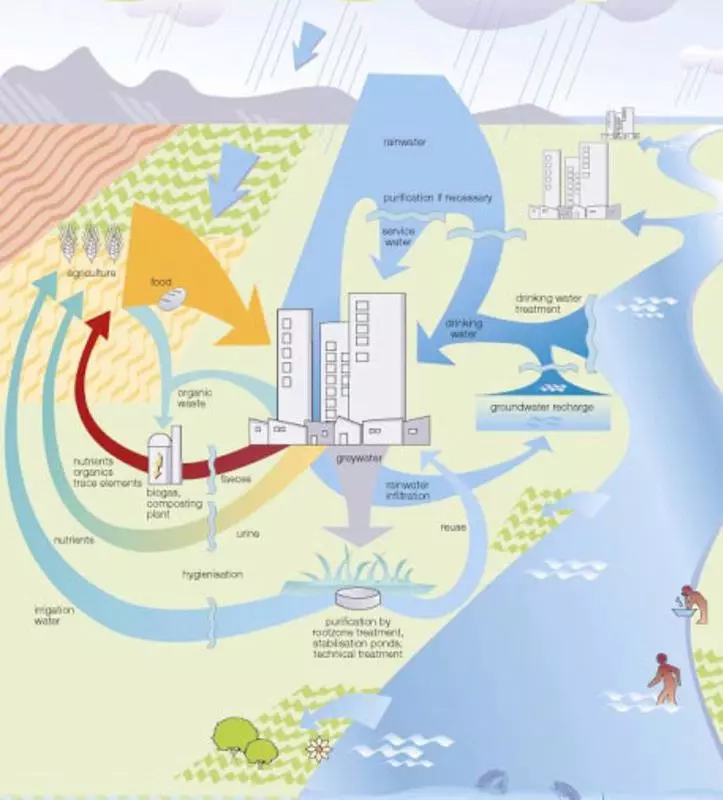
However, not only garden and kitchen wastes can be recycled, but also our toilet wastes. Urine is a highly valuable fertilizer that has similar effects as artificial liquid fertilizer. And faeces and toilet paper can be composted in the same way as kitchen or garden wastes in the classroom compost box. In recent years composting toilets met an increasing attention as a more ecological alternative to central sewer systems. Such ecological sanitation systems got highly popular not only in developing countries but also at remote places in the industrialized world. And modern compost toilet systems are save. If they are well designed, the compost will reach a sufficiently high temperature that will kill all pathogenic organisms.
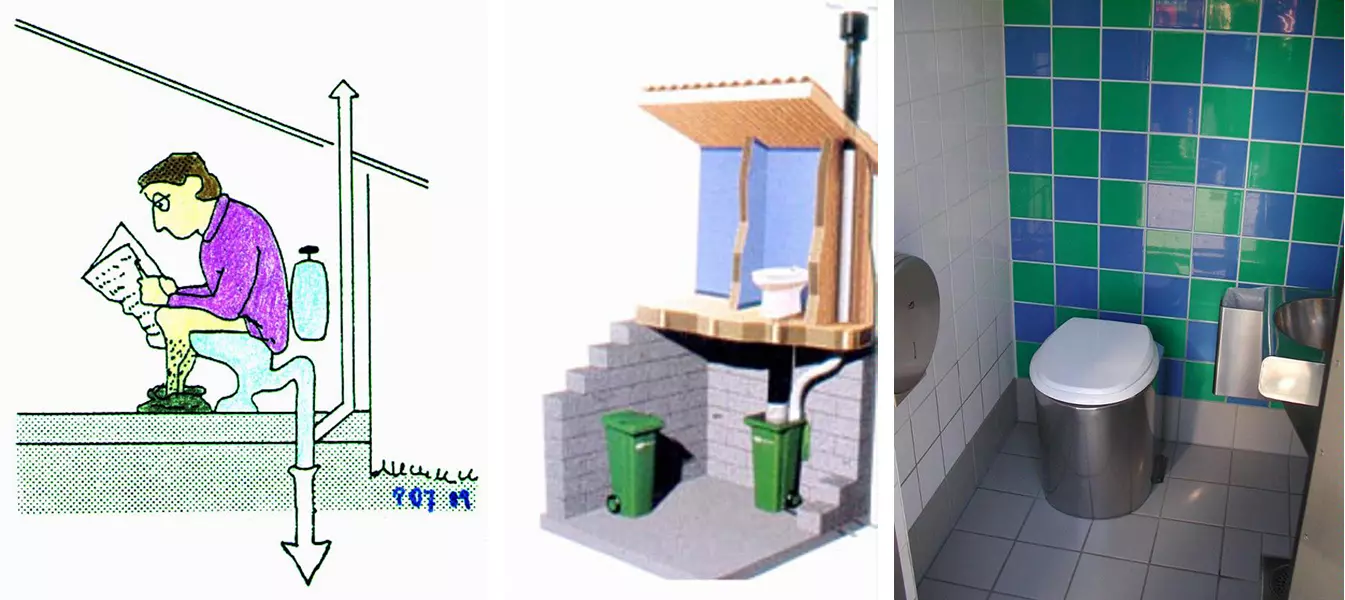
Time requirement
After 3-4 weeks you will see the first results. However it will takes at least 12 weeks to get first fruits from a tomato seedlings.
Material requirement
- 6 plant pots (2-5 litre)
- 3 tomato seedlings
- 10 - 30 litre pot plant substrate (depending on the pot size)
- 0.6-1.5 litres of mature compost
- 0.6-1.5 litres of mature worm compost
- 200 ml of urine diluted to 500 ml with water
The mature compost should be stored at least for three months.
Let's start
The experiment is based on a series of five plant pots with different substrate mixes. It is recommended to split the pupils in groups that each is establishing an experiment series. So you will get results from different parallel series and the opportunity to compare its results.
- Pot 1: Conventional pot plant substrate
- Pot 2: Conventional pot plant substrate mixed with compost from «The classroom compost box» (30%)
- Pot 3: Conventional pot plant substrate mixed with worm compost from «Worm composting» (30%)
- Pot 4: Conventional pot plant substrate and artificial fertilizer (application according to product information)
- Pot 5: Conventional pot plant substrate and 100 ml of urine (diluted to 500 ml)
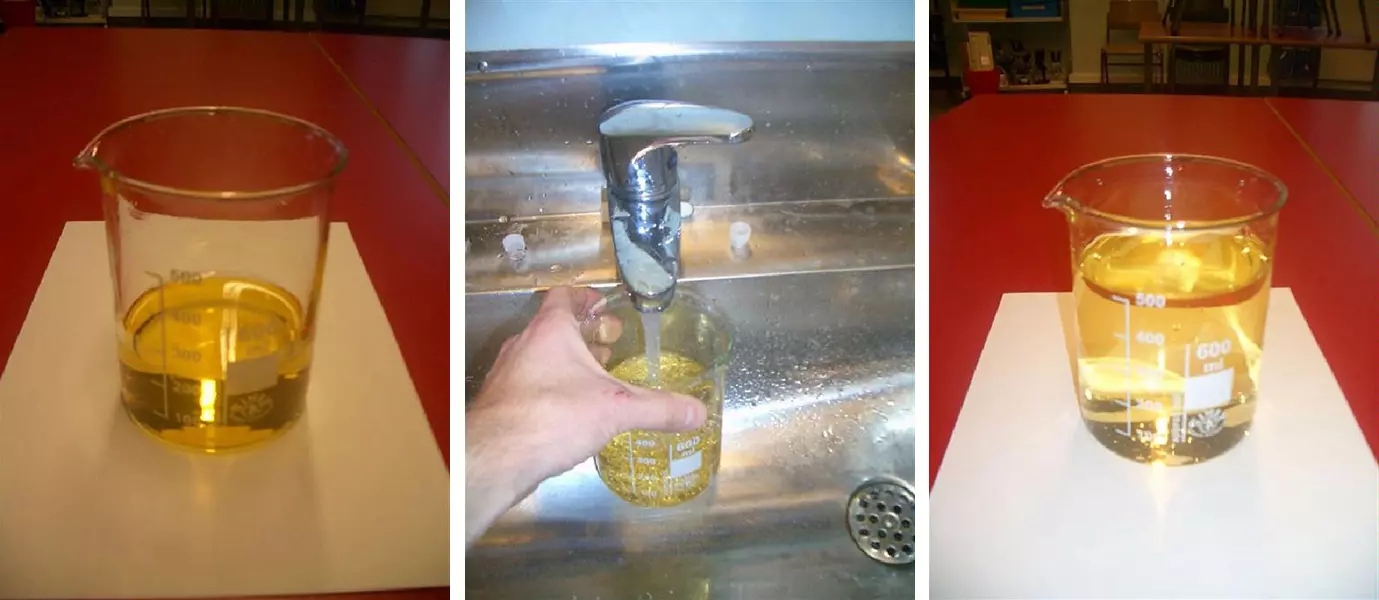
See and feel
- Height of plants: is measured at the highest node
- Number of leaves
- Colour of leaves
- How much water did the plants receive?
Didactical comments
- The students should work in small groups (group size 2 to 4), the number depending on how much space you have available for the plants and how many plants you can afford. With a small group it is more likely that each student feels responsible for the well-being of the plant. The groups should get task they are responsible for (watering, adding fertilizer, measuring, taking pictures etc.)
- Urine normally contains no critical amount of pathogens and can therefore be used directly without further treatment. Heating it to 90 °C removes the pathogens and makes it practically 100 % secure. The use of urine allows an additional understanding of nutrient cycles. The students should be asked if they want to supply urine for the experiment. If the pupils pee in a beaker the whole toilet business is given a scientific touch. The peeing is done in the name of science and is therefore serious business. Probably you should also ask for the parents' permission.
